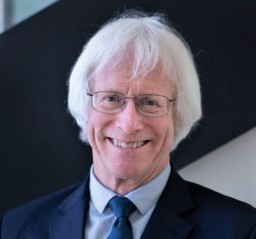I recently participated as a co-inventor on EnterpriseTECH. The student team who worked on our project helped us develop a market, business, and investment case for our innovative ‘Smart Cerebral Shunt’, a novel medical device to improve care for patients with abnormal build-up of fluid in the brain’s cavities.

Normal pressure hydrocephalus (NPH), an abnormal build-up of fluid in the brain’s cavities, affects 10s of millions of people over 65, causing symptoms similar to dementia. The condition can be corrected by implanting a Cerebral Shunt, a device that releases fluid through a drainage tube fitted with a relief valve and thus reduces pressure. Common complications include infection, mis-adjustment of the valve, and deposition of material that blocks the drain. Patients are advised to monitor their symptoms and have regular physician follow-ups, but this is inefficient at best and especially difficult when COVID prevents clinic visits.
An ideal solution would allow remote monitoring and adjustment of the implanted device. Recent technology advances at Imperial College and at Stanford University have yielded wireless pressure sensors and fluid-metering components which, taken together, offer the potential to build an innovative ‘Smart Shunt’. Therapy could be continuously monitored and optimised for NPH patients by remote caregivers aided by adaptive intelligent algorithms.
Supervised by neurosurgeon and start-up mentor Dr Nick Ibery, the five-member student team surveyed the background literature and conducted interviews to understand how the unique technology fit with the needs of current clinical practice.
Key factors for business success in any medical device start-up are a clear understanding of the customer need and a focused vision for the product. Nick led the students through a rigorous analysis of the clinical users and competitive opportunities. The students worked with the inventors to establish safety, performance, and usability characteristics required for success and to determine its position against current in-market alternatives. Finally, the team reached out to practicing physicians, identifying influential resources for early consulting and later in-man trials.
Final recommendations were presented as a pitch deck focused on the impact that a Smart Shunt could have for a typical NPH patient and their family, with an accompanying business and market analysis that makes the company investment-ready.
The inventors found the process very beneficial in focusing and accelerating their business planning, especially in several key areas:
- engagement with the students and their supervisor, discussing the background and intent for the invention and getting a fresh view on how it might be packaged for adoption and investment
- understanding the importance of recruiting an organisation beyond the founding technologists and clinicians, and to develop the market as well as a tangible well-motivated prototype
- a connection to local clinicians treating NPH patients, leading to inclusion in the company’s clinical advisory group
- observing the formal business development process, as the group’s mentor guided students through the process of thinking through the customer needs
- creation of a resource library, assembled by the students in the course of their work
The company founders in California and the UK are grateful to have had the opportunity to work with EnterpriseTECH, advancing their innovation towards the at-risk population of NPH patients (a solid compliment from inventors experienced in working with entrepreneurial programmes anchored in Stanford and Imperial). The management staff, student team, and administrators did great work over a short period, laying a solid foundation for the inventors in assuring future fundraising and project success.
Smart Cerebral Shunt team
Students
- Dr Robert Drake – Postdoctoral Researcher, Department of Neuroscience, University of Bristol
- Dr Pablo Kostelec – Mst Healthcare Data: Informatics, Innovation and Commercialisation, University of Cambridge
- Sarah Sandler – PhD student, Department of Physics, University of Cambridge
- Man Nok Choy – PhD student, Mitochondrial Biology Unit, University of Cambridge
- Wing Ken Man – PhD student, Department of Chemistry, University of Cambridge
Inventors
- Dr David Hampton – Senior Associate Faculty (Medical Devices & Diagnostics), Department of Chemical Engineering and Biotechnology
- Gerald David Silverberg MD – Emeritus Professor of Neurosurgery at Stanford Medical School
Team supervisor
- Dr Nicholas Ibery – Neurosurgeon and Health and Life Sciences VC
Find out more about the programme >
Are you an inventor with early-stage results or a prototype product? Do you want to discover if it has commercial potential? Our teams of EnterpriseTECH student could be finding that out. Submit a project proposal >



Leave a Reply